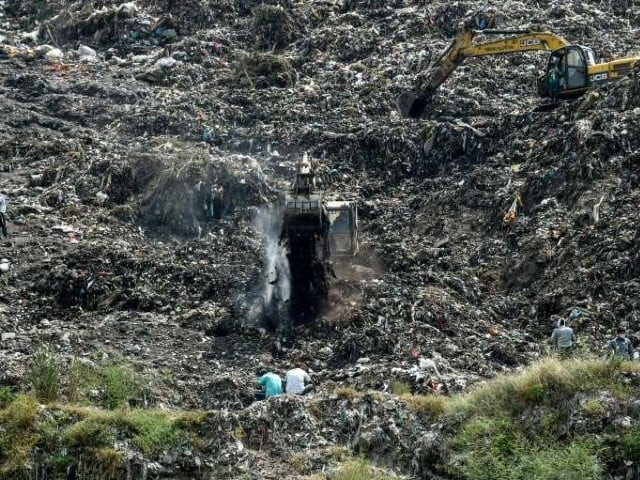‘Slipshod laws to blame for environmental degradation’
Experts urge govt to prioritise combatting plastic pollution, waste management

Speakers at a seminar urged the government bodies to immediately take strict measures and engage citizens in improving environmental conditions to prioritise combatting plastic pollution, solid waste management and water conservation.
“The incremental measures have failed to deliver results while the law enforcing agencies seem toothless as the legislations refrain from strict penalties. There are many examples to learn from the best practices available globally,” they said.
A combo of activities including a seminar, planting of saplings, clean-up of the neighbourhood, art exhibition, speech and essay writing competitions were organised by the Women Welfare and Development Centre (WWDC G-7/2) of the Ministry of Human Rights, ICLC and Devcom-Pakistan on Sunday.
Parliamentary Secretary MNA Naz Baloch was the chief guest. Other guests of honour included Capital Development Authority (CDA) Member Inspection Dr Roomana Gul Kakar, Devcom-Pakistan Executive Director Munir Ahmed, MNA Baloch said students have displayed their passion for the environment in their art, essays and speeches. The experts and civil society shall keep the pace of public awareness while they may suggest improvements in the legislation governing environmental conservation and management.
CDA Member Inspection Dr Kakar emphasised the individual contribution by the citizens using less, reusing and recycling the resources.
Development strategist and environmentalist Ahmed said mainly the burden of environmental degradation is on the lame policies for which the parliamentarians and bureaucracy shall work to improve the legislation including strict punitive measures. The absence of strict legislation and lack of implementation of existing laws have resulted in irreparable loss.
Brig (retd) Aslam said our women, children, marginalised and rural communities are more vulnerable. We lack resources to outreach to them. The big corporations shall come up to fund the grassroots interventions and capacity building of the communities to take measures to protect themselves and the natural resources around them.
Director WWDC Ismat Afridi said their Women Welfare and Development Centre keeps on striving for their students’ interaction with the experts to seek knowledge and best practices to adapt to the environmental changes around themselves, and to be economically empowered to face the world.
Published in The Express Tribune, June 12th, 2023.



















COMMENTS
Comments are moderated and generally will be posted if they are on-topic and not abusive.
For more information, please see our Comments FAQ